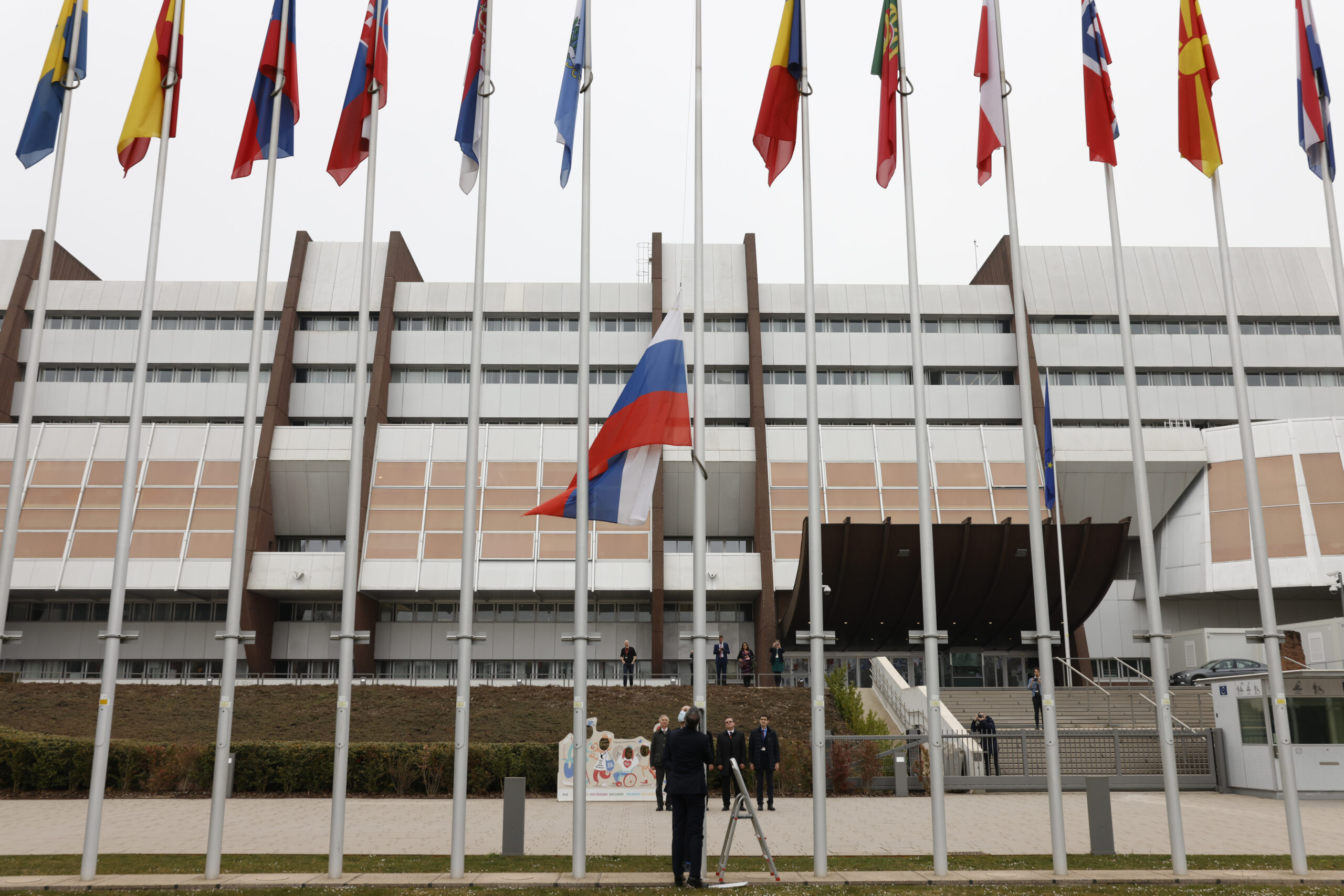Throughout the 20th and 21st centuries, the international community has repeatedly excluded states from international organizations in response to acts of aggression or serious violations of international law. In 1939, the Soviet Union was expelled from the League of Nations for its attack on Finland—the only instance of formal expulsion from that organization. In 1990, following its invasion of Kuwait, Iraq faced international isolation: the UN Security Council imposed harsh sanctions and an oil embargo, while the Arab League effectively suspended Baghdad’s participation. In 1992, the Federal Republic of Yugoslavia (Serbia and Montenegro) lost its UN membership and remained diplomatically isolated until 2000 due to aggression and ethnic cleansing in the Balkans. In 2011, Libya was expelled from the Arab League and the UN Human Rights Council for violence against civilians. Similar measures were applied to Syria in 2011−2012, with its membership in the Arab League and the Organization of Islamic Cooperation suspended. Such actions were accompanied by diplomatic boycotts, sanctions, and exclusion from international forums to limit the aggressor’s influence on the global agenda.
Historical experience shows that excluding states from international organizations does not always lead to an immediate shift in their foreign policy. For instance, after its expulsion from the League of Nations, the Soviet Union did not halt its aggression against Finland, agreeing to a ceasefire only due to significant losses and the threat of British and French intervention. Japan and Germany, anticipating sanctions, voluntarily left the League of Nations while continuing their aggressive policies. These examples suggest that exclusion often serves a symbolic purpose: it does not prevent further conflicts and typically reflects an already-established international isolation rather than causing it.
In modern times, exclusion can play a significant reputational role, and in certain areas—such as technological exchange, science, or economic cooperation—these measures can have tangible effects. However, their impact remains limited and rarely becomes a decisive factor in altering a state’s foreign policy strategy. This raises questions about the effectiveness of such measures as tools for preventing wars and ensuring international security.
Political and Economic Platforms
Following the full-scale invasion of Ukraine in February 2022, Russia faced a massive international response, resulting in the suspension or termination of its participation in numerous intergovernmental organizations. The most symbolic step was Russia’s expulsion from the Council of Europe, an organization dedicated to human rights, democracy, and the rule of law. On March 16, 2022, just three weeks after the war began, the Council of Europe’s Committee of Ministers formally ended Russia’s membership, concluding nearly 26 years of its participation. For the Kremlin, this outcome was likely somewhat advantageous, as it removed an external source of legal oversight and criticism, particularly regarding domestic human rights violations. Beyond the Council of Europe, Russia’s membership was also terminated or suspended in other significant intergovernmental bodies. On April 7, 2022, the UN General Assembly voted to suspend Russia’s membership in the UN Human Rights Council.
A critical development was the cessation of Russia’s cooperation with key international economic institutions. On March 8, 2022, the OECD Council froze Russia’s participation in all its bodies and halted its potential accession process. This ended dialogue on structural economic reforms, corporate governance, anti-corruption efforts, and higher education projects involving Russian research institutes and ministries. On April 4, 2022, the European Bank for Reconstruction and Development (EBRD) cut Russia off from its financial and technical resources, halting investments in the private sector, infrastructure, and environmental projects, such as modernizing water treatment facilities in St. Petersburg and the Kola Peninsula.
Amid this international isolation, many regional organizations also severed ties with Russia. In 2022, its membership was suspended in the Council of the Baltic Sea States and the Barents Euro-Arctic Council, platforms previously used for discussions on ecology, sustainable development, and cross-border cooperation. A notable step was Russia’s exclusion from the Danube Commission, one of the oldest international organizations regulating navigation on the Danube and ensuring Russian vessels’ access to a key European transport route. The Commission also served as a unique platform for regular engagement with a wide range of European states, from Germany and Austria to the Balkans, facilitating dialogue on transport, technical, and political issues.
Russia retained formal membership in the OSCE, a major European security platform, but its participation was effectively paralyzed. Due to the organization’s consensus-based decision-making, its operations were blocked in 2022−2023, with chairmanship and budget adoption becoming impossible. While no formal expulsion occurred, Russia’s influence within the OSCE significantly diminished amid growing international criticism.
In total, Russia lost active participation in approximately 20 intergovernmental organizations, marking the largest wave of diplomatic alienation since the end of the Cold War.
Sports Organizations
Russia’s exclusion from sports became one of the most high-profile forms of international reaction to its aggression. In the days following the invasion, the International Olympic Committee (IOC) urged all sports federations to ban Russian athletes from international competitions. Most sports organizations followed suit. By 2025, Russia was excluded or had its membership suspended in over 25 international sports federations and associations, including the International Paralympic Committee (November 2022), the International Tennis Federation (ITF), the International Biathlon Union (IBU), World Aquatics, the International Cycling Union (UCI), and the International Fencing Federation (FIE).
The response in team sports was particularly severe: FIFA and UEFA fully excluded Russia’s national team and clubs from all competitions, including World Cup qualifiers and European club tournaments. Similar measures were taken by federations for rugby, orienteering, chess, luge, arm wrestling, modern pentathlon, and even poker. Bans extended beyond athletes competing under the national flag to include Russian participation in judging and international committees. Additionally, hosting tournaments in Russia was suspended. These measures dealt a significant blow to Russian sports, traditionally viewed as a tool of «soft power» in its foreign policy.
Cultural Organizations
The cultural and media spheres also played a role in Russia’s international isolation. While not directly tied to politics, decisions in these areas carried strong symbolic weight, reflecting efforts to exclude Russia from global cultural spaces. In 2022−2023, Russia ceased participation in approximately ten humanitarian and cultural organizations. A key step was the expulsion of Russian broadcasters from the European Broadcasting Union (EBU) in March 2022, automatically barring Russia from the Eurovision Song Contest, a platform previously used for «soft power.»
Subsequently, the Eurimages fund under the Council of Europe excluded Russia, cutting off international funding and co-production opportunities for Russian cinema. The Bizot Group, uniting the world’s major museums, suspended Russian representatives, limiting cultural exchanges and Russian institutions’ participation in international exhibitions. UNESCO, where Russia retained membership, suspended its participation in the Executive Board. The International Federation of Journalists expelled the Russian Journalists’ Union, accusing it of supporting state propaganda. These measures were part of a broader campaign to weaken Russia’s cultural influence and global humanitarian presence.
Scientific Cooperation
One of the most significant consequences of Russia’s isolation was its exclusion or restricted participation in scientific and educational programs. By 2025, Russia lost access to around 25 international structures in this field. The suspension of Russia’s observer status at CERN, a leading global scientific project, carried particular symbolic weight. Additionally, Russia was effectively removed from the Bologna Process, with its universities losing participation in the European Higher Education Area, leading to incompatible educational standards, loss of diploma recognition, and halted academic mobility with Europe.
The EU excluded Russia from key research and educational programs like Horizon Europe and Erasmus+, which had provided Russian institutions with billions in funding, university collaborations, and joint projects. Russian research organizations and universities were also excluded or had their participation suspended in dozens of professional associations, including the European Federation of Academies of Sciences (ALLEA), the International Geographical Union, the Council of Archives, the Federation of European Biochemical Societies, and the European University Association.
This rupture not only hindered international cooperation but also significantly limited the prospects for Russian academia. Amid sanctions and internal censorship, this intensified trends toward isolationism and degradation in the scientific community, particularly in the humanities and social sciences.
Other Spheres
Beyond political, sports, cultural, and scientific platforms, Russia lost participation in approximately 20 international organizations in professional, economic, and technical fields. These less visible structures play a critical role in regulating financial flows, safety standards, industry connections, and global coordination. A notable measure was the suspension of Russia’s membership in the Financial Action Task Force (FATF) in February 2023, which sets global standards against money laundering and terrorist financing. This marked an unprecedented step against a nuclear power and G20 member.
Russia was also excluded from the Egmont Group, a network of national financial intelligence units, limiting its ability to combat cross-border economic crime. Membership in the World Federation of Exchanges was terminated, increasing pressure on Moscow’s financial platforms and exacerbating economic isolation. While many of these measures did not yield immediate economic impacts, they contributed to the long-term fragmentation of Russia’s international status, restricting access to professional standards, practices, information, and global coordination mechanisms. Thus, Russia’s isolation affected not only symbolic and political aspects but also the operational infrastructure underpinning its global presence.
Blind Spots
Despite widespread isolation, Russia retained membership in several key global organizations. It remains a permanent member of the UN Security Council with veto power, making its expulsion legally impossible. Russia continues to participate in major UN agencies, including WHO, UNESCO, IAEA, and the International Civil Aviation Organization. It also maintains membership in the IMF and World Bank, though active cooperation has largely been suspended.
Russia remains part of Interpol and the International Telecommunication Union, despite growing political pressure to limit its influence within these structures. Its participation in the G20 provides a crucial channel for maintaining a global presence.
Formats dominated by the Global South or non-Western countries have gained particular importance for Russia’s foreign policy. Russia not only retained its position in BRICS—which expanded in 2024−2025 to include Iran, Ethiopia, and Egypt—but actively uses this platform to promote an alternative global agenda. However, economic cooperation within BRICS is limited: the New Development Bank (BRICS Bank) in Shanghai has not funded Russian projects since 2022, aligning with international sanctions. This highlights the duality of Russia’s position even within such formats, as even «friendly» countries exercise caution in supporting Russia politically, wary of Western sanctions.
Conclusion
Russia’s exclusion from dozens of international organizations across political, humanitarian, sports, scientific, and financial spheres was an unprecedented step, symbolizing moral condemnation and leading to practical isolation from significant global cooperation mechanisms. This affected not only Russia’s foreign policy but also its domestic development, limiting access to resources, exchange programs, global norms, and standards. However, the limits of these measures’ effectiveness are evident.
With support from the Global South and participation in its institutions, Russia has partially maintained its international presence, particularly through platforms like BRICS and the G20. These allow it to remain part of the global agenda despite Western isolation. However, its influence in these structures is constrained by competition, particularly with China, and by Western pressure on partners to limit Russia’s leverage.
Overall, the consequences of Russia’s exclusion are mixed. In some cases, the measures were largely symbolic, while in others, they significantly restricted access to key platforms, technologies, and funding. Russia has partially mitigated its isolation by relying on the Global South and alternative channels. Its future international position will largely depend on Western policies. For instance, U.S. President Donald Trump has warned that countries supporting BRICS policies contrary to Washington’s interests may face additional 10% tariffs. If this stance is consistently enforced, Russia’s isolation could deepen. However, examples like Hungary and Slovakia suggest that Russia can exploit divisions within the West to advance its interests through informal channels and covert diplomacy, bypassing official international mechanisms.










